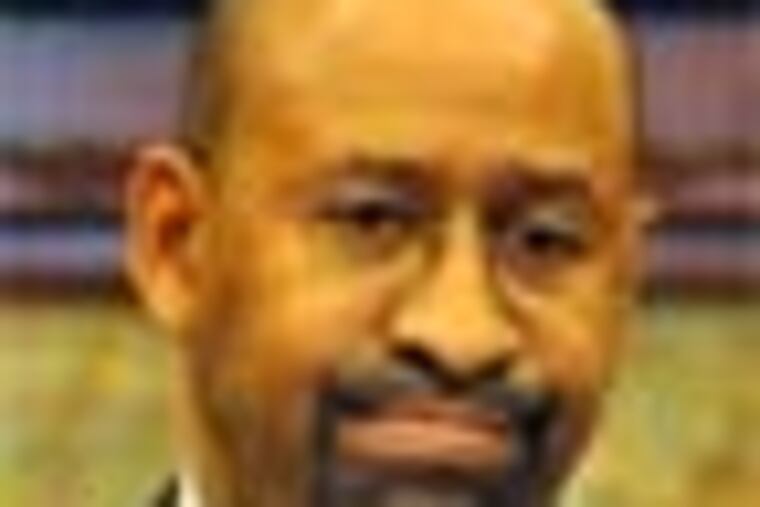Nutter, Council pull off tax-hike switcheroo
They got me. I didn't think Mayor Nutter and City Council had it in them. Not a lot of people in this town have invested (wasted?) the time I have analyzing city budgets over the last four years. But like everyone else, I was fooled.

They got me.
I didn't think Mayor Nutter and City Council had it in them.
Not a lot of people in this town have invested (wasted?) the time I have analyzing city budgets over the last four years. But like everyone else, I was fooled.
Until last week, the media and the public thought the 9.9 percent tax hike enacted last May was temporary, a two-year measure to help the city through the economic crisis. City Council even wrote an expiration date into the legislation, as proof of its good faith.
But as The Inquirer reported last week, Nutter has penciled in a higher take from property taxes for years to come. Apparently, the entire charade had been agreed to after last year's budget vote.
Philadelphia politics is better known for its blunt force than its sophistication. This time, though, Nutter and Council were uncannily convincing in their conniving.
The problem isn't the tax hike itself. Good arguments can be made for permanently raising property taxes. But instead of making a case on the merits, Nutter and Council seem to deliberately confuse the issue.
For cover, they are using a pending switch to a new method for assessing properties, scheduled for 2012. A new system really is necessary, as the old one is unfair and inaccurate. But any fix that rights those wrongs will lead to many taxpayers' owing more, even as other taxpayers owe less.
For a long time, political players like Nutter proclaimed that the switch would be revenue-neutral, meaning the city itself wouldn't make any extra cash.
To win acceptance, they wanted to say, we're doing this for the sake of accuracy and fairness, not to raise revenue.
Now, though, they seem to be figuring something else entirely, like: We're going to get pilloried when we redo assessments, so we might as well go ahead and get some real money.
Twenty percent more, as we found out last week: $86 million for the city's general fund, and $120 million for the School District, beginning in 2012-13.
That's a lot of money. But don't think of it as a tax hike, they suggest. Consider it an end to the freeloading. If property assessments had been more accurate in the past, they say, Philadelphia property owners would have been paying more all along, given that home values have risen over the last 10 years, even taking the housing bubble into account.
"Our position is that we will be capturing what growth there has been in the market, and that will lead to additional revenues," said Finance Director Rob Dubow.
My position is: That's garbage. And guess who agrees with me. Michael Nutter, circa 2002.
"You can call it an assessment or reassessment or a pancake if you like, but what it is, is a tax increase," Councilman Michael Nutter told the Philadelphia Daily News back when John F. Street was mayor.
When I read that old quote to Nutter, I suggested that he was doing just what his younger self complained about.
"No, it's not," he replied. "Because nothing has happened yet. That is really the fallacy of this argument."
True enough. For now, the 20 percent tax hike exists only on the books. Council and the mayor could opt to keep property taxes at 2010 levels. Or they could do what I wish they had done in the first place and make a compelling public case for increasing real estate taxes permanently.
They could point out that property taxes are actually relatively low in Philadelphia, and remind us of prominent local economists who think the city would be more competitive if it shifted some of the tax burden from wage and business levies onto property. They could explain that the city needs the cash, even after shedding jobs and programs these last three years, and highlight the massive deficit city schools face in the years ahead.
Still, it isn't hard to understand why Nutter and Council might dissemble instead. Americans are in the worst kind of denial when it comes to taxes and services (i.e., that you need the former to get the latter), and Philadelphians are no exception. A Pew poll of 1,600 city residents released this month found that 62 percent opposed the property-tax increase, and yet Nutter gets beat up bad - by rivals and the general public - every time he cuts spending.
Maybe that's why the political leadership decided to lie low. The deception might work, for a while. The system is so complex - assessments and millage and actual vs. partial value - that voters may not be able to follow it. That doesn't make it OK to tell them one thing and do another.